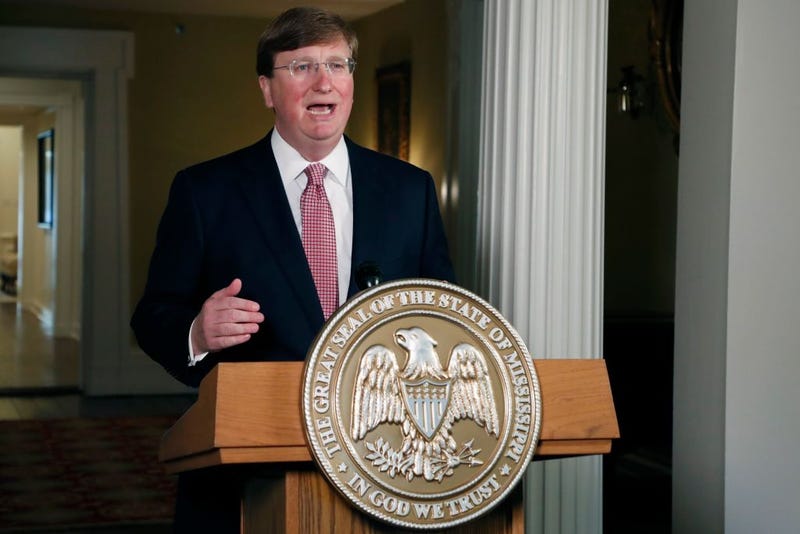
Republican Mississippi Gov. Tate Reeves appeared to avoid answering whether or not his state would pursue a ban on contraceptives during a recent “Meet the Press” interview. Now, he has clarified his stance.
“I don’t have any interest in going after contraceptives,” he told Good Morning America this week.
He also reiterated what he told “Meet the Press” regarding his views on the “next step” for the pro-life movement after potentially overturning abortion protections established by Roe v. Wade. Tate said pro-life advocates should focus on providing resources to pregnant people and mothers as well as finding “forever homes” for babies born to parents who decide not to raise their children.
Good Morning America hosts noted that Mississippi has no state law that prohibits employers from discriminating against pregnant women or that requires them to offer pregnancy leave.
A court case regarding a Mississippi law that bans most abortions 15 weeks after conception and a leaked Supreme Court draft majority opinion that appears to side with the state and could potentially overturn Roe v. Wade are at the center of current debates about abortion and contraceptives. Currently, the nine-justice court has a conservative majority, including three justices appointed by former President Donald Trump during his single term in office.
Apart from going against public opinion on abortion, some are worried that the court’s decision could lead to the criminalization of certain methods of birth control and impair access to in vitro fertilization, according to Wired.
Idaho House State Affairs Committee Chairman Brent Crane, a Republican, seemed to indicate he would hold hearings on legislation banning emergency contraception and abortion pills during a Friday interview with Idaho Public Television. However, he said Saturday in an interview that he supports contraception and would not support hearings banning contraception generally, according to the Idaho Statesman.
Crane said he has heard of safety concerns with emergency contraceptives such as Plan B, which can prevent pregnancy when taken soon after intercourse, and would be willing to hold hearings about them. Another state where there have been questions about the legality of emergency contraceptive use is Louisiana, particularly related to House Bill 813.
A KTAL report found that the bill’s author does not intend for the legislation to “upend the usage or availability of birth control,” and aims to protect “the unborn” from the moment of fertilization.
While emergency contraceptives are Food and Drug Administration approved, availability varies by state. States with liberal abortion restrictions, such as Illinois, have high availability and only one location in Idaho is listed as offering the medication, according to a Health Resources and Services Administration location finder.
According to a 2019 Gallup poll 92% of Americans considered birth control to be “morally acceptable,” with contraceptive use ranking higher than drinking alcohol and sex between unmarried couples.


